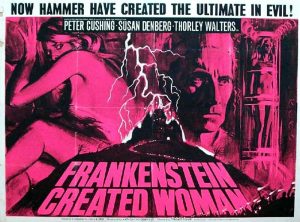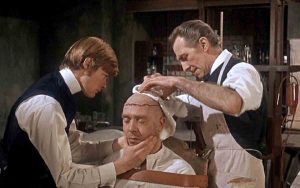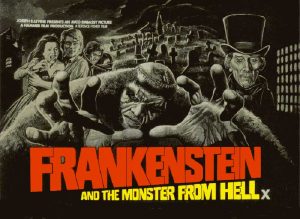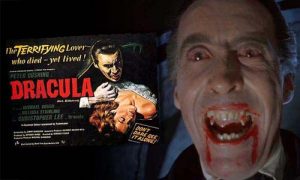The Revenge of Frankenstein 1958, the first sequel in Hammer’s legendary Frankenstein series, is reviewed by ADAM SCOVELL
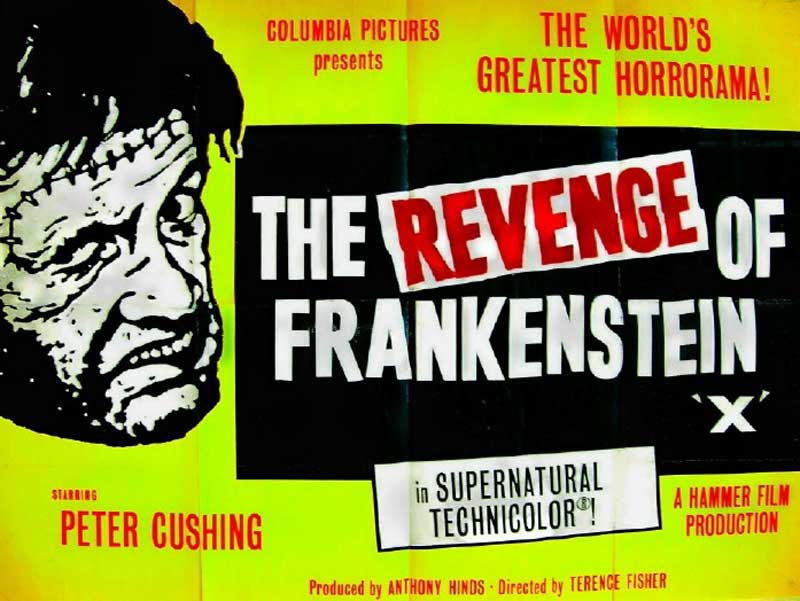
Title: The Revenge of Frankenstein
Year Released: 1958
Director: Terence Fisher
Cast: Peter Cushing, Francis Matthews and Eunice Gayson.
With the previous year’s The Curse of Frankenstein 1957 creating such a financial and creative buzz within British horror, it isn’t particularly surprising that Hammer opted for a sequel immediately afterwards.
Though the disruptions caused by Universal’s initial unhappiness and protectiveness over any of the original designs and ideas were to eventually give-way when the sheer success of the Hammer model was proven, the innovation needed to get around this initial hurdle can be felt all of the way through Hammer’s Frankenstein films.
The Revenge of Frankenstein 1958 starts up literally were the previous film left off, with Frankenstein being sent to the guillotine. Hammer were lucky to have Peter Cushing as their lead for the films as he manages to carry the weaker installments through. With this sequel on the other hand, he is simply an added pleasure to the solid, gothic drama which balances the psychological dramatics with, rather surprisingly, mature horror.
In fact, by comparison to the previous film, Revenge feels more entirely like a psychological drama than other Hammer films; focusing instead on the character moments and dilemmas of Cushing’s nuanced and detailed surgeon than simply seen as an excuse for a monster run around.
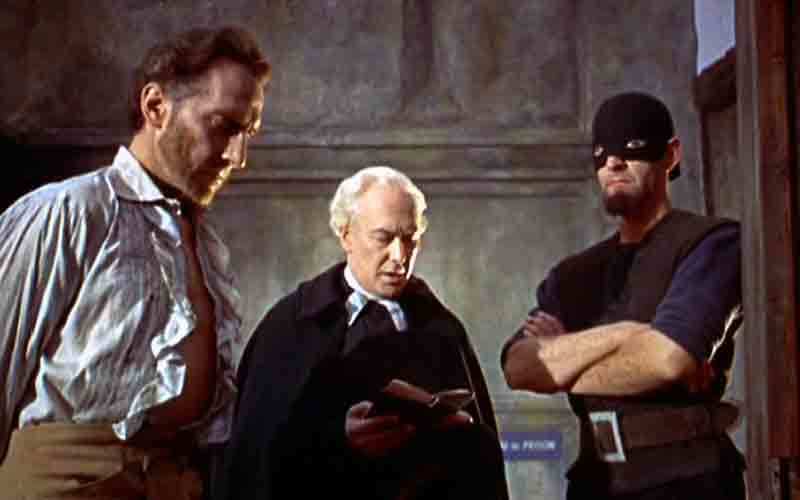
The “monster” is far less like a monster than Lee’s menacing persona from Curse but this only gives weight to the questions that Revenge raises. While Curse lavished in the violence and action that could be caused by Shelley’s original moral questioning, Revenge is instead more concerned with the ethics and the fallout from ignoring the moralistic implications. His initial friendship and kinship with Francis Matthews’ Doctor Hans Kleve also adds to this increasingly intelligent drama, allowing the viewer to witness the debates around the ethics while still being thoroughly entertained by the dramatics of the situation.
There is the usual attention to detail from Terence Fisher and his atmospheric creation of places such as Carlsbruck show cinematic maturity. This is, of course, before the usual mid-European towns in Hammer films became complete clichés though Carlsbruck shows this trend beginning even if pleasingly realised.
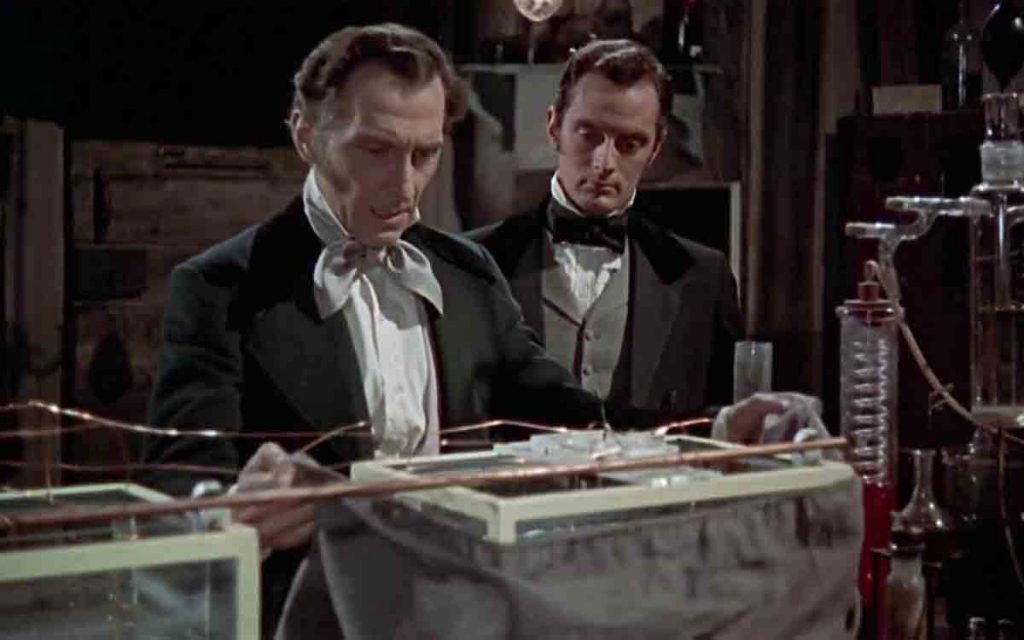
Though far less action packed than the Hammer peers around it, The Revenge of Frankenstein 1958 stands out all the more because of its change of pace. That’s not to say that it doesn’t have its moments of pulpy steam-punk science or violent set pieces but the film doesn’t rely on them as other Hammer films do.
Its ending shows a natural progression of ideas with Frankenstein being saved from a lynching by his science, taught and then practiced by his young helper. This seems highly ironic but also adds a sense of ambiguity to the moral arguments which, unlike other films in the franchise, remain thankfully open ended.
Tell us what you think of The Revenge of Frankenstein 1958

